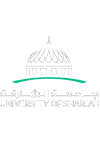This year's Shaw-IAU Workshop focuses on the role of astronomy in formal, primary, and secondary education: How do we teach astronomy as a subject? How does astronomy contribute to the teaching of physics or chemistry - or the communication of such a central future issue as climate change? Furthermore, the workshop discussed how to approach those who set the framework for teaching: How can you get your administration, or at a much higher level: your education ministry, to listen to you? Lastly, the workshop focused on bridging the gap between fundamentals taught in school and cutting-edge research that fascinates students and the general public.
Prof. Mashhoor Al-Wardat, from the Department of Applied Physics and Astronomy, at the University of Sharjah, presented a paper on behalf of a team of UAE astronomers. The abstract and details of the paper are given below.
Modern Methods of Teaching and Learning Astronomy in the United Arab Emirates
Hamid M. Al-Naimy1,2, Mashhoor A. Al-Wardat1,2, Ilias Fernini1,2, Marwan Shwaiki1, Aiman Bustanji3, Othman Abu Khurma4, Randa Asa’d5, Rim Fares6, Joseph Gelfhand7
1 Sharjah Academy of Astronomy Space Science and Technology, University of Sharjah, Sharjah 27272, UAE
2 Department of Applied Physics and Astronomy, College of Sciences, University of Sharjah, Sharjah 27272, UAE
3 School Staff Wellbeing and Development, Emirates School Establishment, UAE
4 Emirates College for Advanced Education, Khalifa City A SE-43, Abu Dhabi, UAE
5 Physics Department, American University of Sharjah, P.O. Box 26666, Sharjah, UAE
6 Department of Physics, College of Science, United Arab Emirates University, Al Ain 1551, UAE
7 Dep of Physics, NYU Abu Dhabi, UAE
The interest of the United Arab Emirates in the astronomy and space sciences sector and its inclusion in national priorities positively reflected education at its various educational and cultural levels. This was manifested in establishing several specialized centers in the country, which impacted young people, especially school students, and reached university students.
In this article, we will focus on the role of private and governmental educational institutions, planetariums, and bodies specialized in developing learning and teaching methods, especially interactive ones, in the horizons of space and astronomical sciences. We will briefly discuss the role of each of these institutions and present in detail the role of the University of Sharjah, represented by the Sharjah Academy for Astronomy, Space Science and Technology (SAASST), in employing its scientific and technical competencies in developing the education sector.
Since its establishment, the Academy has taken it upon itself to serve the community and the educational sector in the country and the region. It has built a global scientific institution that includes the largest planetarium in the region that provides many scientific exhibitions, especially astronomical, various specialized educational and research laboratories, and meteor and space debris monitoring stations distributed over the country's different regions. In addition, the Academy has several optical and radio astronomical observatories equipped with the latest equipment and accessories.
In cooperation with the Ministry of Education, all specialized institutions in astronomy and space sciences in the country have contributed to the establishment of workshops to provide teachers with the necessary skills to teach these sciences. In addition, several UAE universities have the know-how to build CubeSats and organize specialized professional diplomas programs. Some of these programs were allocated for gifted and distinguished school students in cooperation with the Sharjah Education Council. Furthermore, several astronomical camps were set up to train students and teachers practically.
As a result of all this, over the past seven years, the number of those interested in these sciences increased, the number of students enrolled in the physics and aerospace engineering departments in universities increased, and several programs at the graduate level were launched in these disciplines in state universities.


